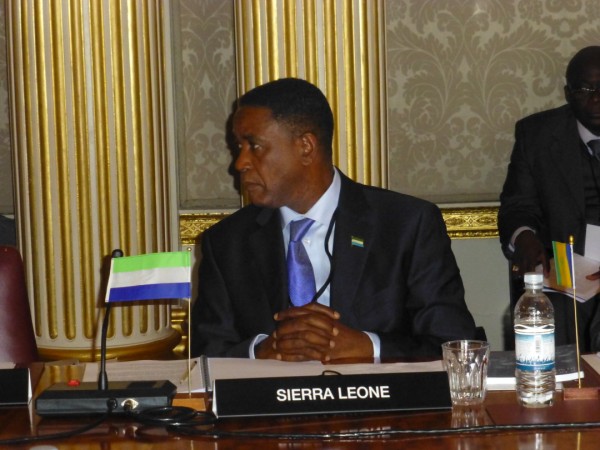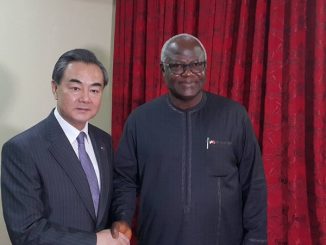
Contributing to the debate on the Commonwealth cybergovernance model: ICTs and Education, Kanu said, “to derive benefit from any technology is to know how to use it rather than focusing on the technology itself. Commonwealth member States should adopt a policy that will increase awareness among schools and colleges to pay attention to how children can use the Computer and the mobile phones rather than focusing on the applications… Digital literacy should be the focus.”
ICT MINISTERS
ICT according to Minister Kanu is a knowledge based industry that enhances social and economic development and therefore urged commonwealth member States to adopt the international computer driving license. There should be effective pre-service and in-service Teacher training in the appropriate and effective use of ICTs in education. The introduction of e-governance can only succeed if Civil Servants are trained on how to use the computer.
On the issue of cybersecurity, he continued, the Sierra Leone Police has a Cybercrime Unit that investigates crimes committed in cyberspace. He appealed to the Commonwealth Secretariat and the Commonwealth Telecommunications Organization to build the capacity of not only the Police as an institution but all government institutions, as well as schools and colleges on the use of the computer in Sierra Leone.
Interim Chairman of the Forum Mrs. Omobola Johnson, Minister of Communication Technology, Nigeria said that Internet and Cyberspace is a new phenomenon. It is therefore the responsibility of ICT Ministers to create an environment where crime can be prevented using ICT. People should be told how to be safe on line.
Commonwealth Secretary -General Kamalesh Sharma in his keynote address said, that “by exchanging experience and insights on a vast variety of subjects, whether an opportunity or a threat, and a many other ICT-related issues, we continue a rich Commonwealth tradition. It is one of offering mutual support and best experience and practice and seeking both to draw on, and to share with others, the wealth of knowledge and wisdom gained, and the benefits of new thinking. This is vital if we are to harness rapidly and to optimal effect the proliferation of new technologies available.”
The forum, he continued, brings together a rich pool of collective knowledge from across the Commonwealth. We can expect to discover new areas of common interest, and to find fresh ideas and opportunities for exploiting the benefits of technology. We can also anticipate the development of enduring networks and relationships for fruitful collaboration.
He concluded by committing the Commonwealth Secretariat to assisting e-Governance programs in member States such as Seychelles, Sierra Leone, Swaziland, Tonga, Tuvalu and Vanuatu, and is now developing a regional approach to e-Governance that build on, and leverage the experience gained.
At the end of the Forum, the Commonwealth ICT Ministers unanimously agreed to meet annually to share views on progress made in their various countries with regards to the implementation of the cybergovernance model. Hon. Alpha Kanu also nominated Mrs. Omobola Johnson to serve in the capacity of Interim Chairman of the Commonwealth ICT Ministers Forum.
By Kwame Yankson






Leave a Reply